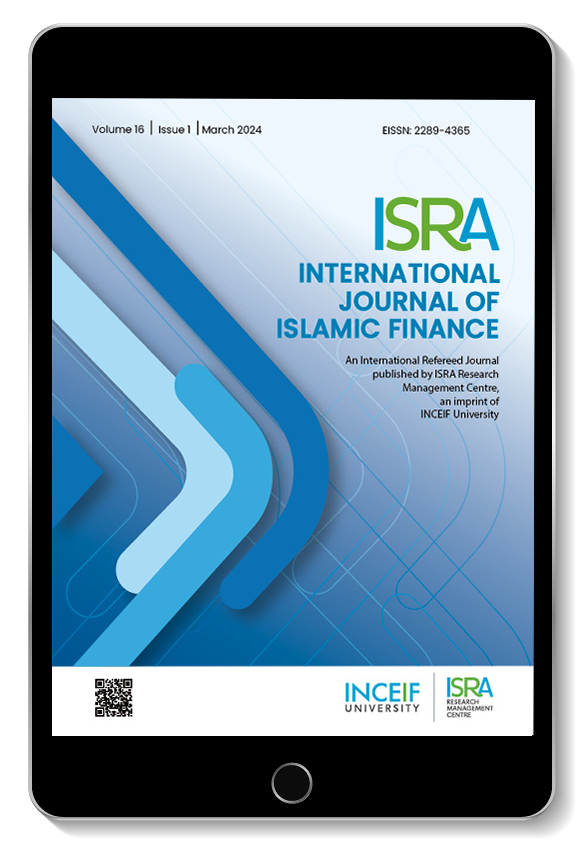Corporate criminal liability in Islamic banks in Malaysia
IF 2.8
Q2 BUSINESS, FINANCE
引用次数: 0
Abstract
PurposeThis paper aims to highlight provisions that may attract corporate criminal liability (CCL) in legislation and regulations enacted in Malaysia. Further, this paper identifies gaps or obstacles in the implementation of CCL in Islamic banks (IBs) in Malaysia.Design/methodology/approachThis research adopts the qualitative methodology. More specifically, it uses normative legal research by focusing on primary and secondary data obtained from legislation, regulations, decided case laws, guidelines, law textbooks and bank annual reports in relation to CCL provisions. It also conducts semi-structured interviews with different categories of experts, including legal practitioners (lawyers), regulators from Bank Negara Malaysia (BNM) and Securities Commission Malaysia, officers of the Attorney General's Chambers and officers from legal departments in IBs.FindingsThe results conclude that IBs should implement the law on CCL because they are considered corporations. It is also found that not all IBs complied with CCL provisions brought corporate offenders before the court.Research limitations/implicationsThis research is restricted by its specialisation in CCL in IBs in Malaysia.Practical implicationsThe CCL provision has to be implemented effectively by IBs to achieve the benefit. However, not all IBs implement CCL provision properly. The understanding created by the interview data illuminates the challenges in implementing CCL provisions. Thus, this paper seeks to change the approach in the implementation of CCL provisions by IBs in Malaysia.Originality/valueThe paper touches upon a new area, notably CCL in IBs, which is not well researched in past literature. Although there is a vast research on CCL, corporate crime in IBs in Malaysia is still an unexplored area. This study gives light on the implementation of CCL provisions in IBs.马来西亚伊斯兰银行的企业刑事责任
目的本文旨在强调马来西亚立法和法规中可能引起公司刑事责任的条款。此外,本文还确定了马来西亚伊斯兰银行实施CCL的差距或障碍。设计/方法/方法本研究采用定性方法。更具体地说,它利用规范性法律研究,重点关注从立法、法规、已裁决的判例法、指南、法律教科书和银行年度报告中获得的与CCL条款有关的主要和次要数据。它还对不同类别的专家进行半结构化访谈,包括法律从业者(律师)、马来西亚国家银行(BNM)和马来西亚证券委员会的监管机构,总检察长办公室的官员和IB法律部门的官员。调查结果表明,IB应该执行关于CCL的法律,因为它们被视为公司。调查还发现,并非所有IB都遵守了CCL的规定,将公司罪犯带上了法庭。研究局限性/含义这项研究受到马来西亚IB CCL专业化的限制。实际含义IB必须有效实施CCL条款才能获得利益。然而,并非所有IB都正确执行CCL条款。访谈数据所产生的理解说明了执行CCL条款所面临的挑战。因此,本文试图改变马来西亚IB执行CCL条款的方法。原始性/价值本文涉及一个新的领域,尤其是IB中的CCL,这在过去的文献中没有得到很好的研究。尽管对CCL有大量的研究,但马来西亚IB中的公司犯罪仍然是一个尚未探索的领域。本研究阐明了在IB中执行CCL条款的情况。
本文章由计算机程序翻译,如有差异,请以英文原文为准。
求助全文
约1分钟内获得全文
求助全文
来源期刊

ISRA International Journal of Islamic Finance
BUSINESS, FINANCE-
CiteScore
3.40
自引率
17.40%
发文量
18
审稿时长
20 weeks
期刊介绍:
It is the aspiration of the editorial committee that IJIF achieves the highest rank in quality and substance. It is thus our aim that the journal be carried in the Thompson Reuters’ ISI and Scopus databases. By ensuring high standards in articles published in Islamic finance we ensure that further innovation and research is carried out and promoted in the Islamic finance industry and academia. IJIF publishes 2 issues per annum.
 求助内容:
求助内容: 应助结果提醒方式:
应助结果提醒方式:


